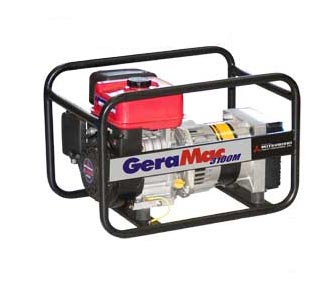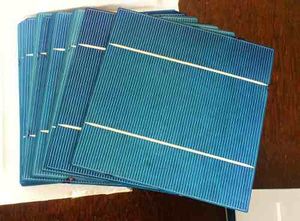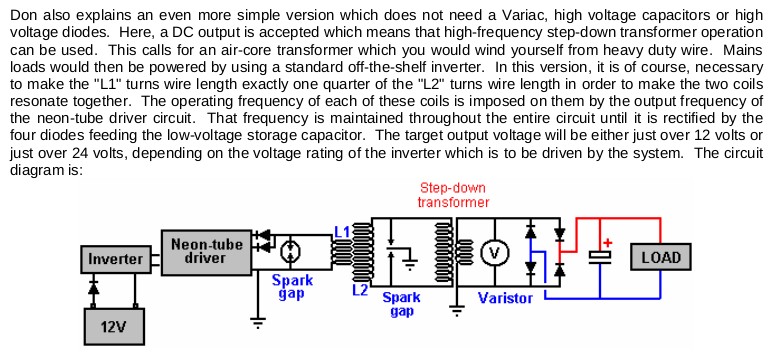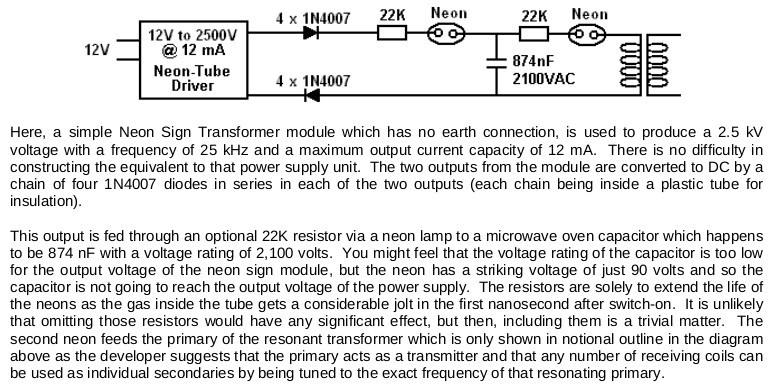Our power project
It will cost many thousands to get grid power to our land, so we're instead going to use the money to set ourselves up with our own independent power sources. We don't need much power as our main requirements are just for lighting, internet and laptops which is around 100W of power when all in use. I estimate that we'll be able to get by on about want about 600W hours of power per day initially.
We'll be using solar for water heating, gas or fire for cooking, a water-wheel for pumping water to four or five meters height for some pressure, and we won't be using a fridge because we have no dairy products and all our vegetables stay fresh by only picking them as we need them. Initially before our solar setup is ready and for things that require high power such as power tools, we've got a GeraMac 3100M 3KW petrol generator which has a Mitsubishi engine made in Japan.
Which ever sources of power are used (solar, hydro, wind etc) storage batteries are required to cater for the varying voltage and current supplies from these different sources and their variable power availability. And this means that a charge controller is required to match the voltage and current of the varying input sources with the varying requirements of the battery depending on its state of charge. Unfortunately it's very expensive to get the kind of hardware that can accept multiple varieties of input sources, so we'll need to have separate sets of batteries and charge controllers for each kind of power source we use (apparently you can parallel up more than one charge controller onto the same battery bank, but I think this would be less efficient).
The load outputs of these charge controllers can then be joined with some power diodes prior to the input of the inverter. Of course more than one inverter can be paralelled up as well since that's simply adding more load, but the AC side of the inverters must never be tied together since their waveforms will be out of phase, so the must run separate AC circuits.
For our small initial requirements, one or two 100Ah batteries and a cheap car inverter will be fine since we're only running LED lights and some computer equipment which all have their own power regulation. I've ordered this cheap 200W model for US$20 which should do the trick.
Contents
Solar
If we consider a worst-case of about four hours of sun per day (which is about right for winter in Rio Grande do Sul) and we want at least 600W hours of power per day then we need at least 150W of panels initially. I'd like to double this reasonably soon and eventually have 1KW of panels so that we can afford to be less frugal with our power, for example by beaing able to keep the computers running when we're not using them so that we can receive incoming calls etc.
We're going to start with a basic 152W kit like this. Building our own panels from the a kit of individual cells gets the price down to around R$2.40 per Watt which is about half of the best prices available in Brazil for ready-made solar panels.
Another requirement is the charge controller which is best to be a good one using MPPT technology so that we get the most out of our energy sources and batteries. Unfortunately MPPT systems are too expensive here in Brazil, so we'll need to settle for a cheaper PWM system such as the SML-25 or SML-60 from MovTec here in Curitiba (Rua Carmem Maito Stinglin, 80, ph. 30145114).
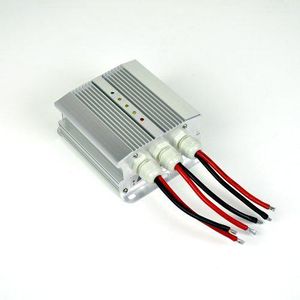 |
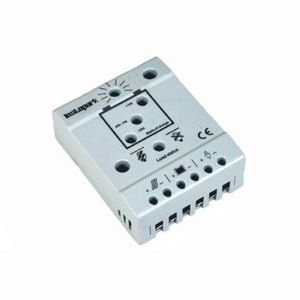
|
| SML-60 | SML-25 |
We got the charge controller today. We decided on the SML-60 because we'll be running a 12V system which means that the SML-25 would only be able to handle 300W which is less than another one of our current 152W sets of cells. The SML-60 can handle 720W which means four of or 152W modules will be no problem at all for the unit to handle.
Wind & Water
We'll eventually get a small wind turbine and water wheel set up, but we'll start with the solar and work on these later. The common factor in both of these is the generator. I want to get in to building my own after I downloaded Energy Creator's DVD and found that building really efficient generators of a few hundred watts of power is totally doable and quite cheap.
Free energy
After reading some of the 2600 page Practical Guide to Free-Energy Devices eBook, I really want to try some of the simpler designs out for myself.
The first being one of Don Smith's designs on page 236:
The second is another of Don Smith's designs on page 248:
And I've always found the Tesla Aerials pretty interesting which are discussed starting on page 586.
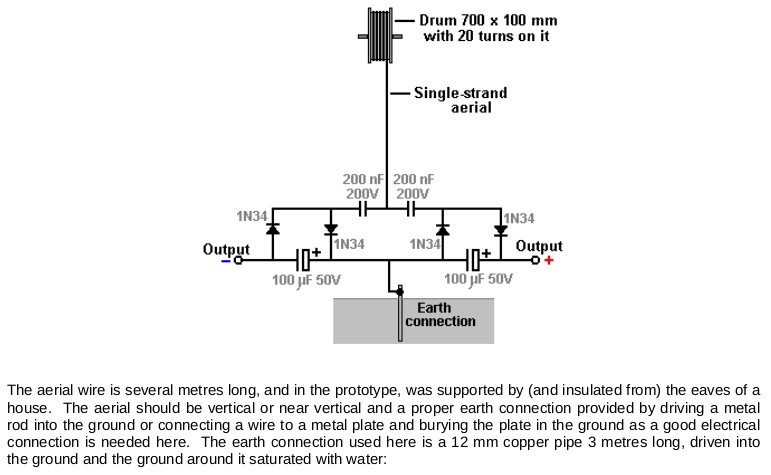
|
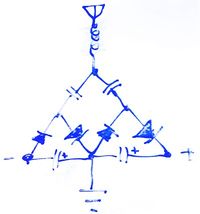 Whiteboard notes from 2011 |
See also
- Moving on to our land
- Our rural net connection
- Energy
- Gravity light - cool crowd-sourcing project for creating lighting from a lifted weight
